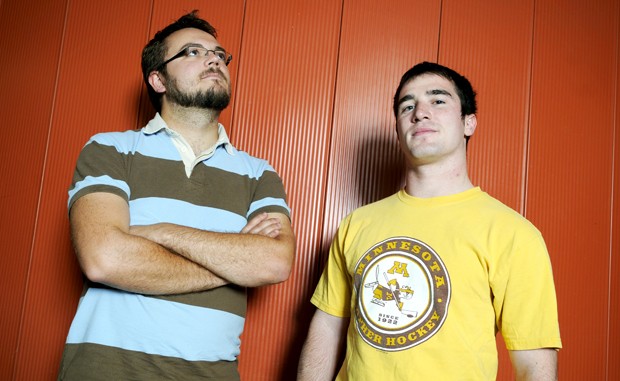The class is over, but the work is just beginning for the University team ReachOut Water Solutions. The four-student group developed a winning business plan aimed at providing clean, accessible water to the slums of India’s largest city, and now they’re setting out to turn their coursework into reality. By winning a pilot course-based competition, the team earned a trip to Mumbai to find out how they might implement their plan. Two of the members recently returned from the two-week trip, and are now working to tailor their business plan and find funding to help them continue their work. Team ReachOut competed with six others from the University of Minnesota, Illinois Institute of Technology and one team of high schoolers in the inaugural Acara Challenge, a contest developed by a new local nonprofit called the Acara Institute. Fred Rose, co-founder of the institute, said they plan to run the challenge again next spring semester and include more universities in the U.S., India and possibly Mexico. The University will be a returning participant, and the three-credit civil engineering special topics course will expand from this spring’s 12-student capacity. Civil engineering professor Julian Marshall, who will teach the course next spring, said he seeks to include students from a mix of departments, including engineering, public health and business. This past spring, each college team worked with industry mentors and partners at a Mumbai university to develop a sustainable business plan meant to address the broad issue of water access in Mumbai slums. Team ReachOut members Mark Lundgren, Tony Schrempp, Brian Bell and Karthikeyan Kumar decided to work with an existing sanitation program that provides toilets that residents and passersby can use for a fee. At the end of spring semester, teams presented their proposals to judges with business development experience. The goal was to choose a group with a sustainable business model that also provides a social return, Rose said. The plan that won Team ReachOut a trip to Mumbai involved sending groundwater and city water to the existing toilet centers where it would be disinfected with ultraviolet light and distributed in sealed containers. The two-week trip, which the team embarked on at the end of May, was meant to lay the groundwork for eventually implementing the idea, Lundgren said. They’d arrived in Mumbai with one standard solution in hand, but when they found different water problems in the slum communities they visited, they realized a one-size-fits-all approach wouldn’t work. Lundgren said some residents get water from a âÄúchaotic systemâÄù of pipes runningâÄîsometimes through open channels of sewageâÄîfrom a municipal water line to individual homes. In the poorest slums, people have to walk to collect water from private vendors. But in other slums, the team found well organized and engineered systems of the kind they’d like to implement. Ultimately, Lundgren said, any solution would have to be tailored to fit the community’s needs, wants and what they’re willing to pay for. And thatâÄôs what he and his teammates plan to do in pilot project they hope will show their business model works. While in Mumbai, the team found a likely source of funding for that pilot project in India’s science and technology ministry, which expressed interest in supporting the fledgling business by granting money to a community-based organization that would work with ReachOut to design and build a system. Their eventual goal is start âÄúa legitimate water business,âÄù Lundgren said, beginning with the pilot project, an extensive survey of slum communities, and a search for further financial support in the United States. Along with a variety of technical water issues, the Mumbai slums present a complex social situation. Lundgren said it’s a common perception among Indians that they shouldn’t provide services to the slums, because people shouldn’t be living there and they don’t want to encourage them to stay. Still, he said the team received âÄúan overwhelming amount of support for our ideas,âÄù perhaps, he said, because there don’t seem to be a lot of social ventures like it going on there. And now it’s up to Lundgren and his teammates to continue developing the business, even as they return to other school and work obligations. Students don’t formally agree to see their business through after the class ends if they win, and Rose said there was a concern that students would drop off after the class credit was granted. Still, he said he’s happyâÄîbut not surprisedâÄîto see team ReachOut’s continuing commitment. Lundgren and Schrempp both said theyâÄôre pleased with how the course has turned out, and Lundgren said the variety of skills the class required him to learn in a short time was âÄúpretty amazing.âÄù âÄúReally being given a huge problem and trying to figure out a way to develop it is, it’s hard to quantify all those skills, but it’s definitely more than a textbook problem,âÄù he said.

Image by Matt Mead
Pilot U course winners discuss Mumbai water work
The students hope to turn their coursework into a business that would improve water quality and access in Mumbai slums.
Published June 15, 2009
0
More to Discover







